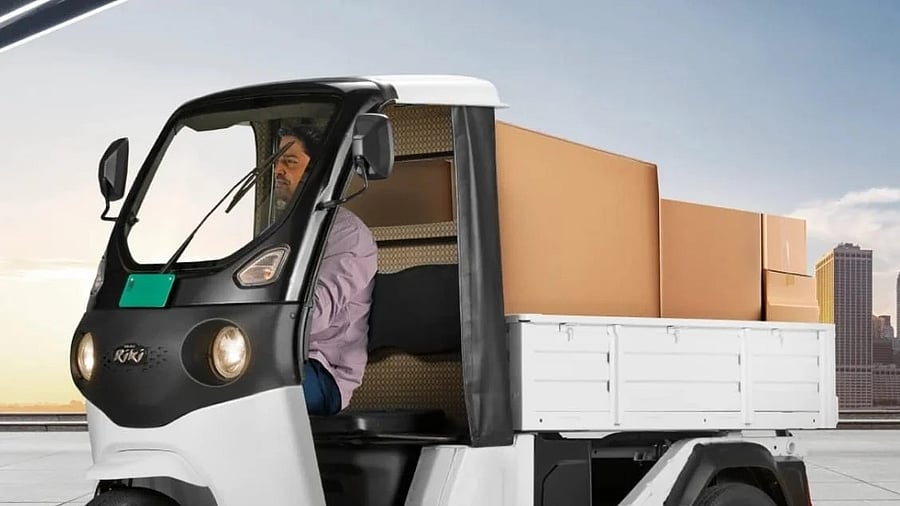
Bajaj Auto enters e-rickshaw segment with 'Riki'
Credit: Special arrangement
New Delhi: India’s leading three-wheeler manufacturer Bajaj Auto on Wednesday announced its entry into the e-rickshaw category, with the launch of passenger and cargo models with a starting price of Rs 1.91 lakh.
The company will market its e-rickshaw business as Bajaj Riki.
“Riki brings Bajaj Auto’s trusted 3W engineering and dependability into the electric rickshaw segment at a time when drivers and passengers need dependable solutions,” said Samardeep Subandh, President, Intra-City Business Unit, Bajaj Auto Ltd.
“We’ve brought the best for the industry, the longest range, a monocoque chassis, independent suspension and hydraulic brakes. Riki is engineered to increase driver earnings, enhance passenger safety and comfort, and deliver the reliability India’s last-mile ecosystem has waited for,” he added.
The company’s passenger e-rickshaw model, called ‘Bajaj Riki P4005’, comes with a 5.4-kWh battery and is priced at Rs 1,90,890 (ex-showroom).
It has also introduced a cargo model called Riki C4005, which is priced at Rs 2,00,876 (ex-showroom).
The e-rickshaw category has expanded rapidly post-Covid, adding over 45,000 vehicles every month, driven by demand for affordable last-mile mobility. E-rickshaws form a significant part of last-mile connectivity feeding Metro, suburban rail, and city bus systems — making reliability and safety essential for both drivers and passengers.
Subandh said the Riki was introduced in Patna, Moradabad, Guwahati, and Raipur on a pilot basis, and will now be expanded to over 100 towns across Uttar Pradesh, Bihar, Madhya Pradesh, Chhattisgarh and Assam in the first phase.